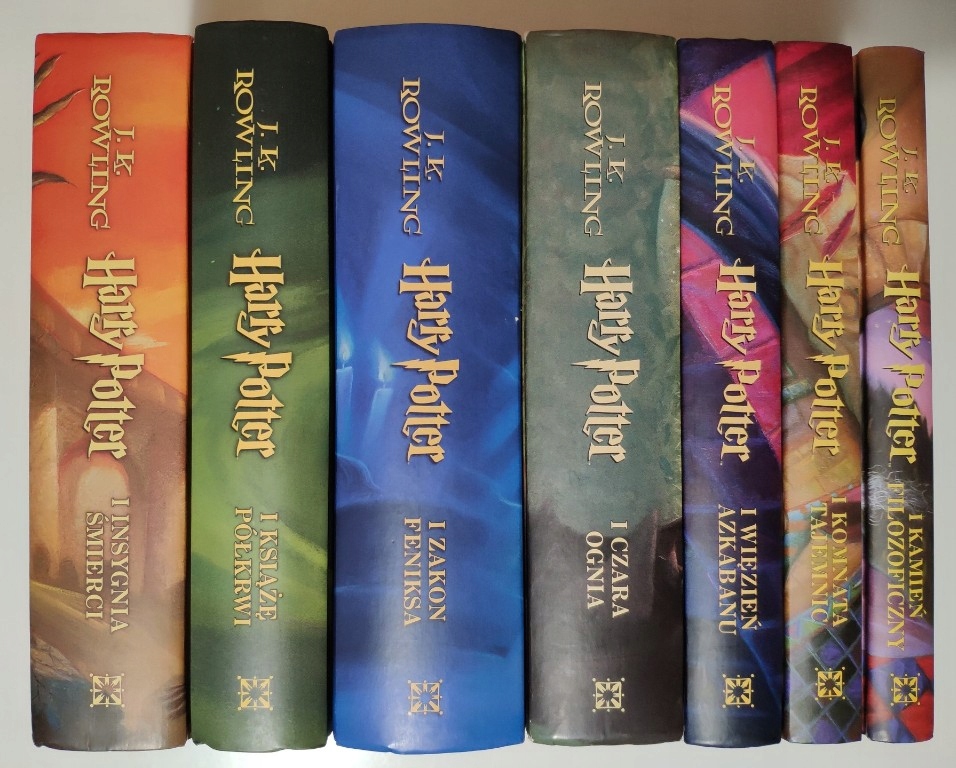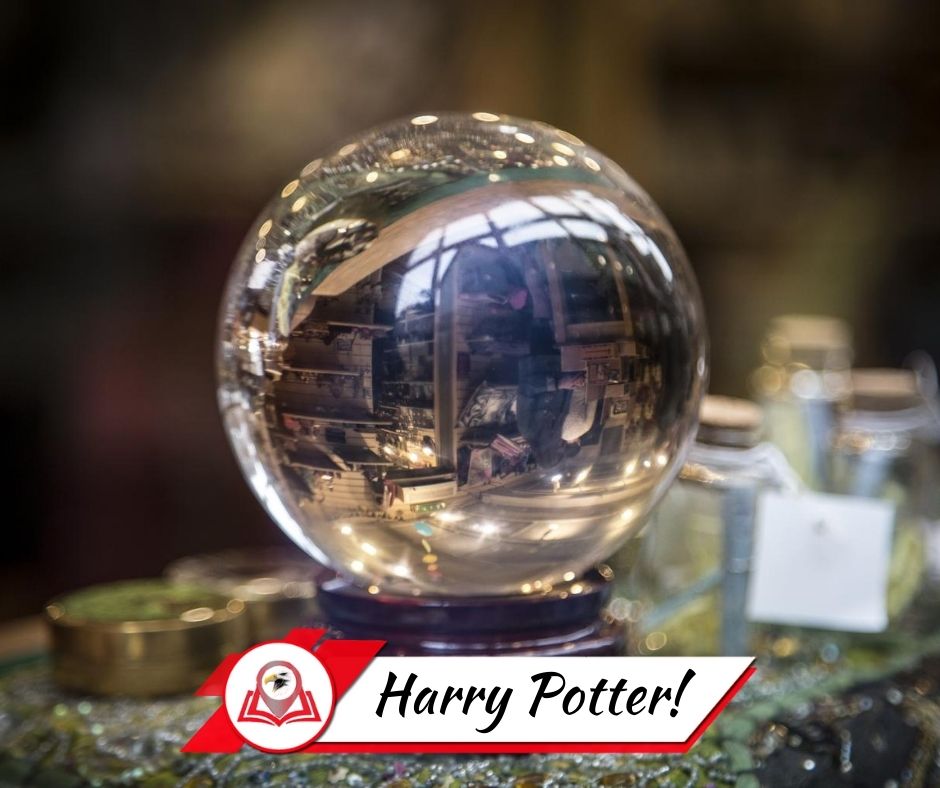Today I would like to discuss with you a little unusual, but very interesting topic: the names of magical items from the Harry Potter books.
It’s amazing to observe how the interpreter decided to name all those inventions which don’t really exist and which were imagined by Rowling. In some cases they are left in English transcription, but in most cases the interpreter’s creativity had no boundaries. Knowing these expressions might help you to remember a lot of other Polish words.
Let’s start with the names of the books themselves:

Harry Potter and the Philosopher’s Stone — Harry Potter i Kamień Filozoficzny
Harry Potter and the Chamber of Secrets — Harry Potter i Komnata Tajemnic
Harry Potter and the Prisoner of Azkaban — Harry Potter i więzień Azkabanu
Harry Potter and the Goblet of Fire — Harry Potter i Czara Ognia
Harry Potter and the Order of the Phoenix — Harry Potter i Zakon Feniksa
Harry Potter and the Half-Blood Prince — Harry Potter i Książę półkrwi
Harry Potter and the Deathly Hallows — Harry Potter i Insygnia Śmierci
And now a small overview of the most interesting and well-known magic items:
Marauder’s Map – Mapa Huncwotów
Invisibility Cloak – Peleryna-Niewidka
Pensieve – Myślodsiewnia
Wand – Różdżka
Trick Wand – Lipna Różdżka
Howler – Wyjec
Extendable Ears – Uszy Dalekiego Zasięgu
Muggle – Mugol
Time−Turner – Zmieniacz Czasu
The Sorting Hat – Tiara Przydziału
Horkrux – Horkruks
Portkey – Świstoklik
Remembrall – Przypominajka
Potions – Eliksiry
Mudblood – Szlama
Floo Powder – Proszek Fiuu
Death Eaters – Śmierciożercy
Ton-Tongue Toffees – Gigantojęzyczne Toffi
Triwizard Tournament – Turniej Trójmagiczny
Quick-Quotes Quill – Samopiszące Pióro
Blast-Ended Skrewts – Sklątki Tylnowybuchowe
Puking Pastille – Wymiotki Pomarańczowe
Fainting Fancies – Omdlejki Grylażowe
Stinksap – Odorosok
Vanishing Cabinet – Szafka Zniknięć
Draught Of Living Death – Wywar Żywej Śmierci

I can’t help commenting on some of them. Let’s start with the word “przypominajka” (remembrall). In Polish there is a word “przypomnienie” – “a reminder”. I should admit that after the Harry Potter books had been published the word “przypominajka” became extremely popular in everyday language. The interesting point is that the word «przypomnienie» remained in the meaning of a written or spoken reminder (for example, a reminder of the upcoming loan payment from a bank), whereas «przypominajka» is used in the meaning of any automatical reminder with an alarm, for example on a smartphone or a watch. Now it’s so natural in the language, that many people don’t even remember that several years ago the word «przypominajka» hadn’t even existed.
My second favourite word from the list is “myślodsiewnia” (“pensieve”). Without even mentioning the fact that I absolutely adore the idea itself, even from a linguistic point of view it’s an elegant translation. This word contains the meaning that thoughts (myśli) can be sifted like flour (siać, przesiewać, odsiewać). You must agree it couldn’t have been translated better, could it?
What’s more, I really like the “omdlejki grylażowe” (Fainting fancies). “Omdleć” means “to faint”. And “grylaż” means “brittle” – a sort of sweet consisting of flat broken pieces of hard sugar candy with nuts. In Polish we usually talk about “nadzienie grylażowe”, a brittle filling for candies and sometimes cakes. That’s why the term “omdlejki grylażowe” clearly shows that they were meant to be fancies (grylażowe), but they also can make one faint (omdlejki).
Which of these words and expressions did you like the most?



